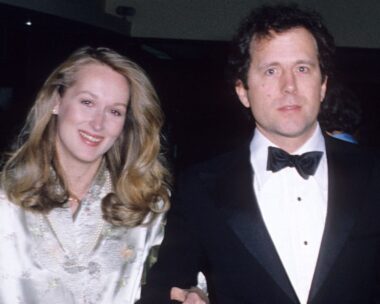If the recent splits of Hugh Jackman and Deborra Lee-Furness, or Meryl Streep and Don Gummer, is anything to go by, divorces of long-lasting couples who have been together for decades are on the rise. While we may seem removed from the celebrity world, this separation spike isn’t exclusively a Hollywood phenomenon.
Locally speaking, divorce applications peaked during COVID. This was due to pandemic-related stresses. Then came the cultural phenomenon of the Barbie movie, which empowered women to reconsider their relationship expectations.
“More and more women as they enter into their wise years are breaking the generational pattern of settling for a relationship that no longer nourishes their soul,” says divorce lawyer Cassandra Kalpaxis.“More women are prepared to go it alone or to find someone new who meets their emotional needs.”
As they surpass their 40s, says Cassandra, many women begin to put themselves first. “They are acknowledging their worth and what they bring to the table and it’s a deeply touching movement. I definitely think this trend will continue.”
While it’s empowering for women to leave a relationship that isn’t serving them, the reality isn’t a simple “it’s over” before popping the champagne – particularly after a long-lasting relationship. Divorce, even if amicable, has a significant flow-on effect. And yes, divorce disproportionately affects women.
“Long-lasting couples who divorce face a multitude of complex issues that need to be resolved,” says relationship psychotherapist Lissy Abrahams. “These include emotional adjustments, ongoing support for children, housing, organising spousal support, dividing assets, beneficiary designations, and legal costs.”

Are women disproportionately affected after a divorce?
Divorce affects women more than men. This is for a number of reasons.
Firstly, there’s the income disparity. “Women often earn less than their male counterparts due to a variety of factors. These include the gender pay gap where women still earn 13.8 per cent less than men, and jobs in female-dominated industries attract lower wages.”
Typically, women are also more likely to be the primary carers for children after a divorce. “This can impact their ability to work full-time or may require additional childcare expenses,” adds the psychotherapist.
Career progression can also be difficult for women post divorce. “Many have been out of the workforce longer impacting career progression and opportunities. Further, many women take a lower paying job just to get back into the workforce.”
Lastly, “while child support can mitigate some of the financial disparities, it doesn’t typically cover many of the actual day to day expenses for children or the running and maintaining of a household.”

How can women regain their independence after a divorce?
“Women are most definitely affected disproportionately at the outset (of divorce). However, the law allows for women to regain themselves if applied correctly,” explains Cassandra.
“The best way to regain your independence is to be healthy mentally, emotionally, and physically,” adds Lissy. “This is where turbo charging your self-care is crucial. The sooner you recover and heal from your separation, the more you will be able to have adventures and explore your world.”
The body’s fight-or-flight mode can also kick in as a result of post divorce stresses, so it’s important to calm your nervous system, explains the psychotherapist. “It is hardwired to react to stressors as if they are a threat to your life. Breathing exercises or mindfulness techniques are helpful.”
Lastly, it’s crucial to evaluate your support network and distance yourself from unhelpful or negative energy. Instead, build “a supportive circle with people who are wise and can advise you, and who love, care, and reassure you.” Research has shown that women are more likely to have a strong support network than men, so it’s important to check in on the divorced men in your life.
Lastly, never be ashamed to seek therapy or other services.
“The decision to end your marriage or your relationship is not easy,” explains lawer Cassandra. “It must be met with the assistance of a professional like a divorce coach, a collaborative family lawyer, a mediator, a psychologist, a financial advisor. This is your A team to ensuring your financial, emotional and legal wellness during separation. It is essential that you are future focused. You release the past and make decisions based on what needs to happen to move forward. That may mean decisions which are transitional to get you to the next decision.”



